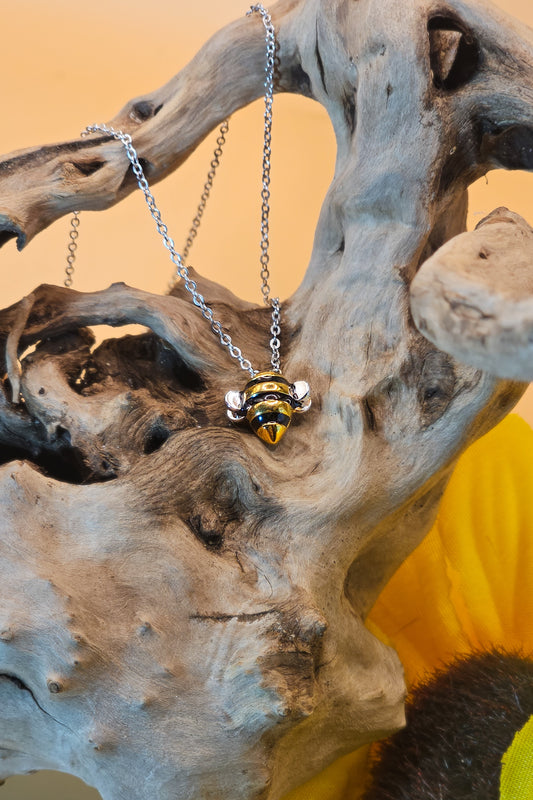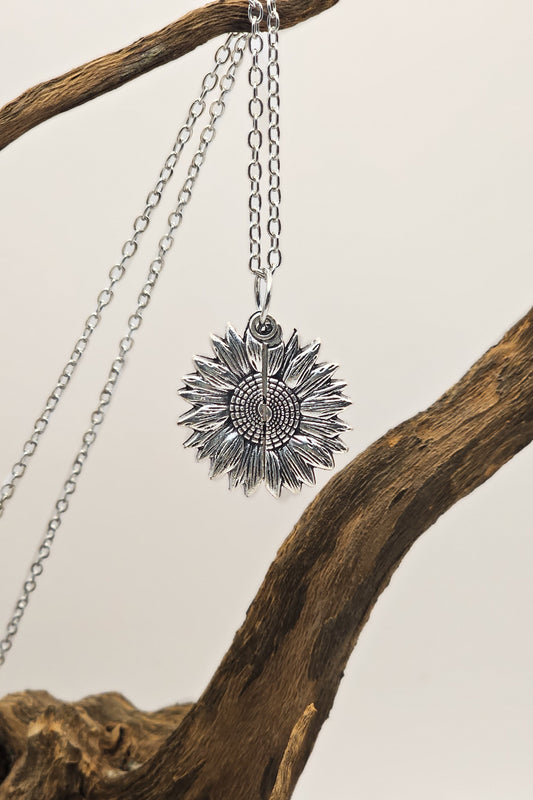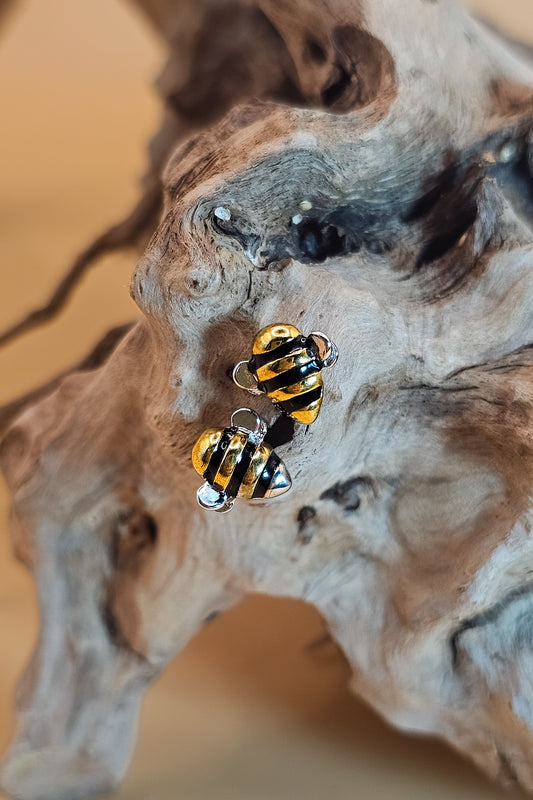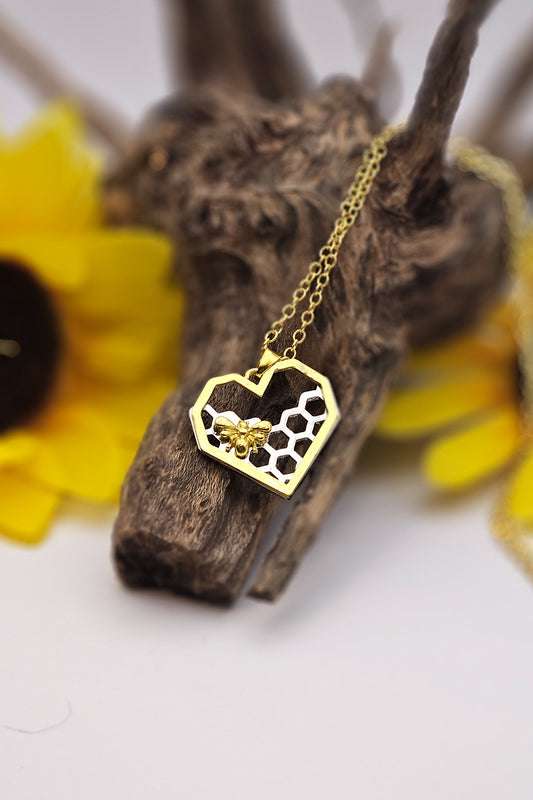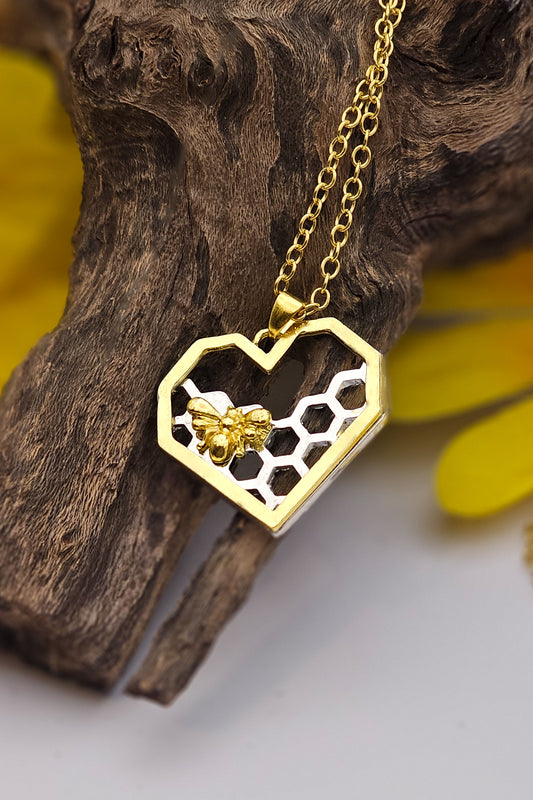It depends... on many things.
Which species of bee? How hard is the rain? How desperate is the bee?
Honeybees CAN fly in the rain, but they prefer not to. They usually stay inside the hive until the rain passes and it clears up.
Flying in the rain can be dangerous to them for several reasons.
Bees are very solar-oriented beings and use the sun for navigation. If they can’t use the sun to navigate back to the hive, they may get lost and that could be fatal.
Overcast, cloudy and wet weather is not something they enjoy, especially if a storm is coming.
This is an incredible 1:32-minute video by Frederick Dunn – What do bees do in the Rain? They get a drink of course!
Imagine if a worker bee is loaded down with pollen in her pollen baskets or carrying a belly full of nectar and a giant raindrop pelts her and forces her to the ground.
If rain is heavy and severe, it can weigh the bee down when she is drenched. It can also blast her so hard that she is forced into a standing puddle of water, where she could drown.
Her little body is covered in fine hairs, so water of any kind will cling to her. Even the slightest mist can interfere with her flight. It can affect the speed of her wing beats which are usually around 12,000-13,000 beats per minute. Worst of all, it can break her wings. If she is away from the hive and caught in a sudden rainstorm, she will usually seek shelter and wait it out.
Rain can also dilute or wash away the nectar in flowers, which would make foraging trips useless until the flowers get nectar production going again. Flower petals can also get slippery and bees prefer to forage on dry flower petals.
If you are a beekeeper with hives in a place where it rains a lot, it might help to build a rain visor over your hive’s landing board because as can be seen in this stunning 5:58-minute video by Frederick Dunn, it helps bees take off and land smoothly in the rain if they must go out.
It is said that bees can sense atmospheric changes and a change of weather moving in. Scientists believe this comes from a bee's ability to assess a blend of wind speed, air temperature, humidity and barometric pressure. They are often observed foraging more than usual before the arrival of a storm.
Bumblebees do not mind rain as much as honeybees. For this reason, they are very welcome pollinators of crops like blueberries in places where it rains a lot.
If you ever see a drenched bee on a sidewalk or anywhere she doesn't belong and the bee seems dazed or isn't well, either leave her alone if conditions are improving or move her to a slightly drier location very close by so she can still navigate to find her way home.
Happy weekend and BEE well. Thank you for reading our blog posts. :)


